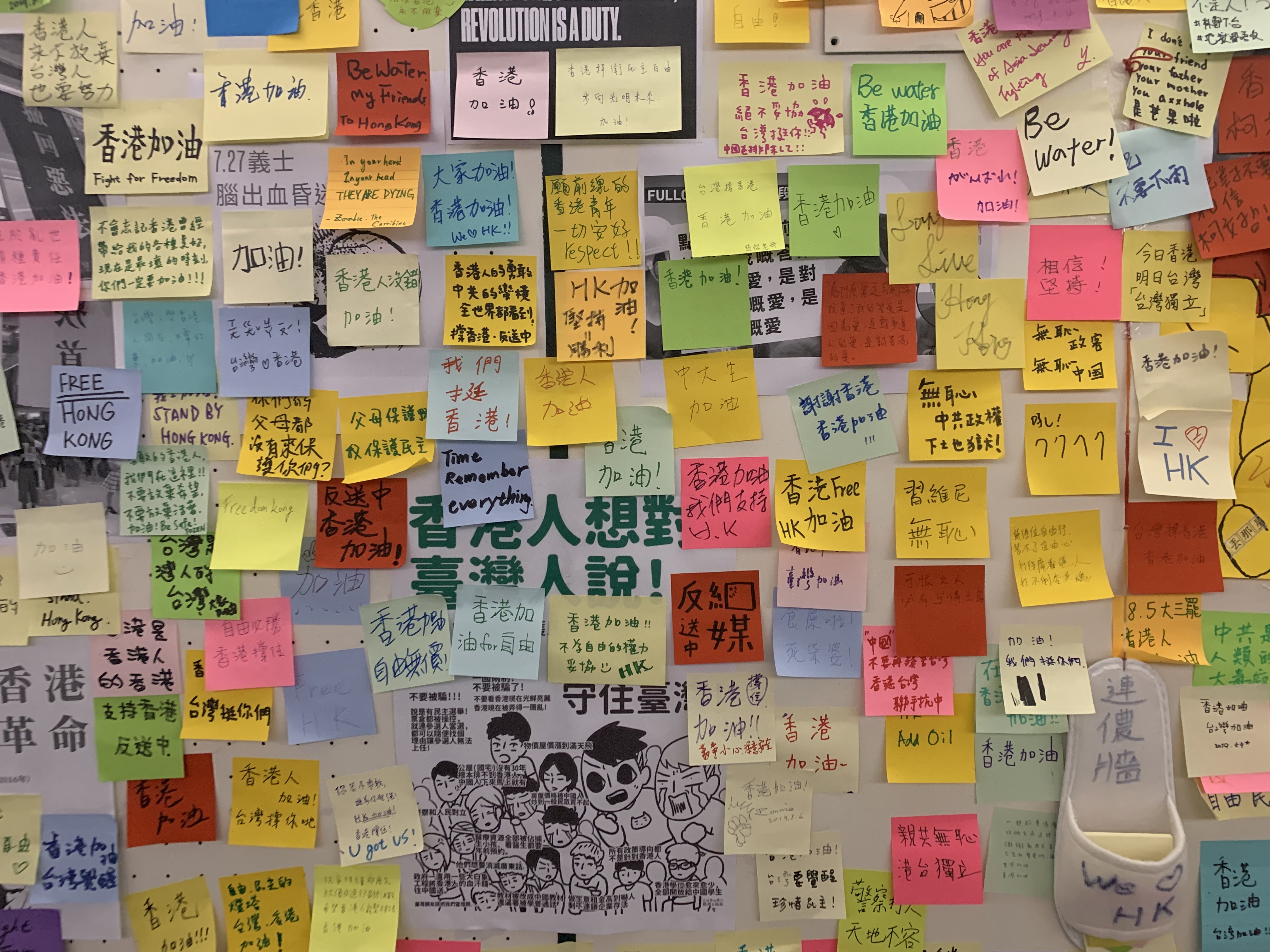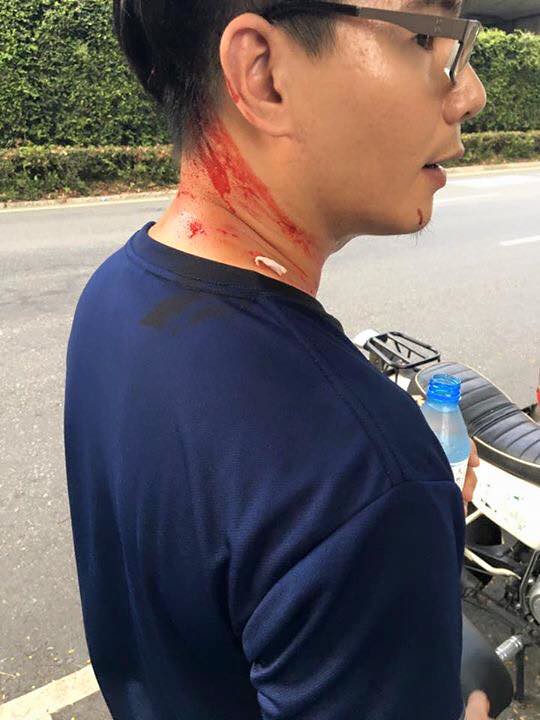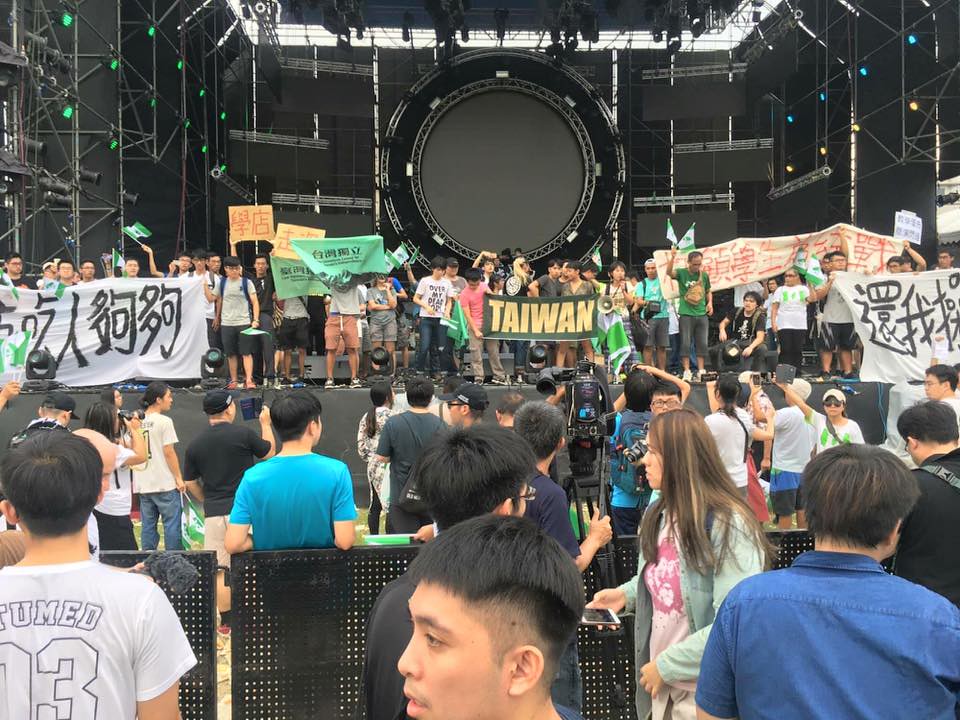I don't have a big post to write here, this is more of a photo essay.
As you might know already, a Lennon Wall (a wall of pictures, post-its and other written messages inspired by a Beatles-themed wall in Prague) has popped up in Taipei, mimicking several Lennon Walls that have appeared (and are sometimes taken down by pro-China dissenters) in Hong Kong since protests began.

I'm posting it because not everyone is able to go see the wall - a lot of my readers are not in Taipei, or are perhaps simply not able to make it to Gongguan. I want those people to be able to look at the messages of support written for Hong Kong by the people of Taiwan.
I want to say here that anyone who is unable to go to the wall but would like to add a message of support can leave a comment on this post or on Lao Ren Cha's Facebook page (which you are cordially invited to 'like', by the way) with what you want to say, and I will personally go to the wall, post your message of support, and take a photo to send to you. Seriously - I don't live that far away and I'm pretty free next week. Just ask.

The wall is located near MRT Gongguan Station and National Taiwan University's southwestern edge, in the underpass that lets pedestrians traverse the Roosevelt Road/Xinsheng South Road intersection.
I'm not sure why sticky notes are the vehicle of choice for these sentiments, but my guess is that it's because they're easy - the stickiness is right there - they're cheap, they can go up quickly, they're colorful and they won't cause any damage. I don't know about Hong Kong but in Taipei an added advantage is that people can leave blocks of sticky notes behind for others who'd like to add to the wall but haven't brought materials.
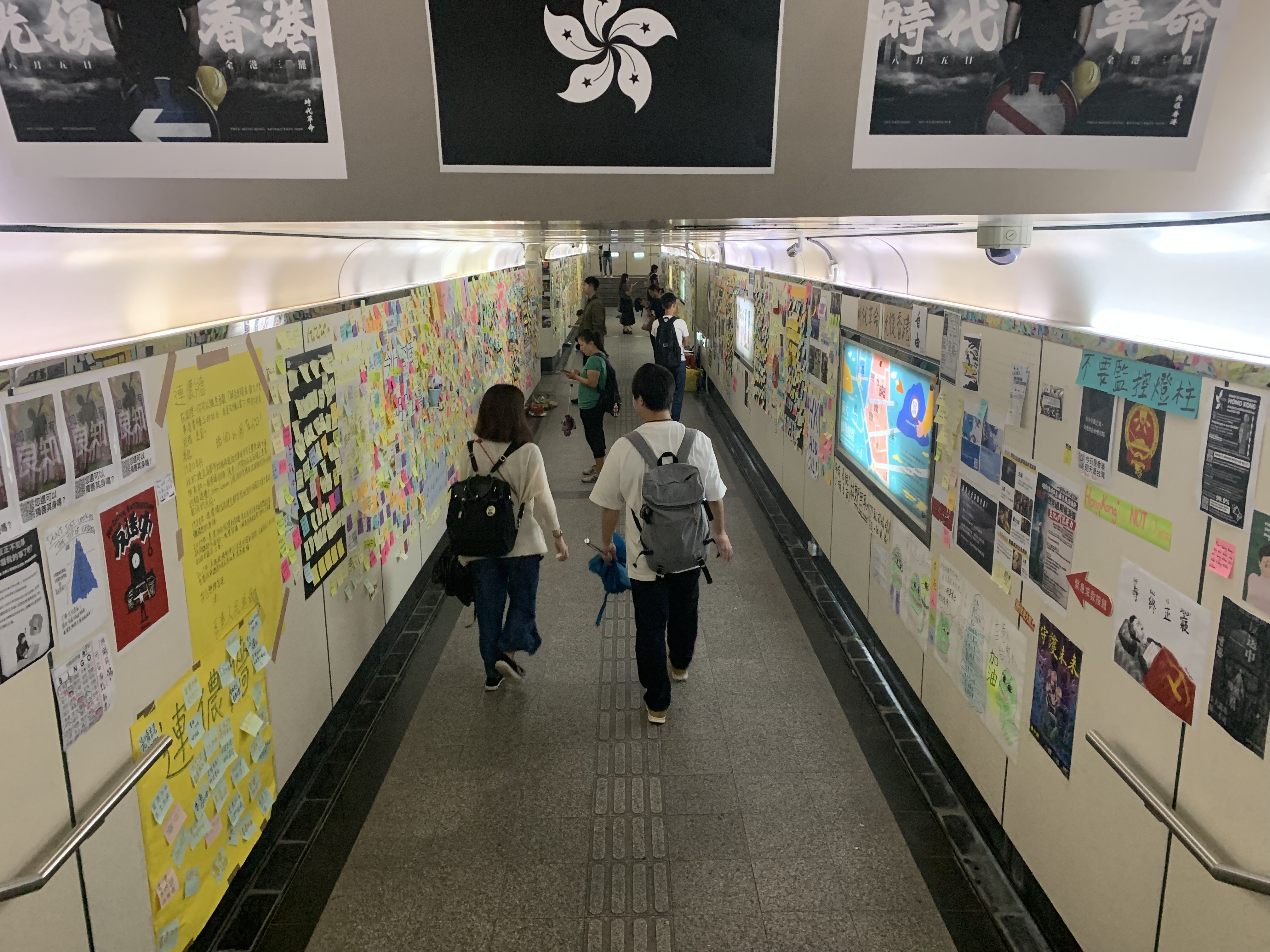
When Brendan went to check it out several days before I did, as I'd been in China, it seemed a lot smaller than it is now. It's absolutely burgeoning with messages now, and I imagine it will only get bigger.
There are volunteers who watch over the wall - after all, Taiwan also has pro-China thugs who tear things like this down out of sheer petty childish vindictiveness. Plus, there are markers, pens and sticky notes made available so anyone can come by and write a message without preparing in advance.

The messages come from around the world - Brendan and I are not the only foreigners to have left them - in a variety of languages (though mostly Mandarin, Cantonese, Taiwanese and English).
They are mostly in support of Hong Kong and the protests there - many of them pointing out that what happens in Hong Kong affects Taiwan and we are all in this together in the fight for freedom. Some, however, explicitly reference Taiwan and call for Taiwanese de jure independence.
There's some conflict as well:

That's understandable as many Americans in Taiwan (and many Americans in general!) support Taiwan and Hong Kong, but the governments of some countries have been slow to act or show support.
And, as you can see, while most of the messages are positive and call for peace and non-violence, others take an (also-justified) angrier tone, lashing out at Carrie Lam, Xi Jin-ping, the KMT and the Hong Kong police.
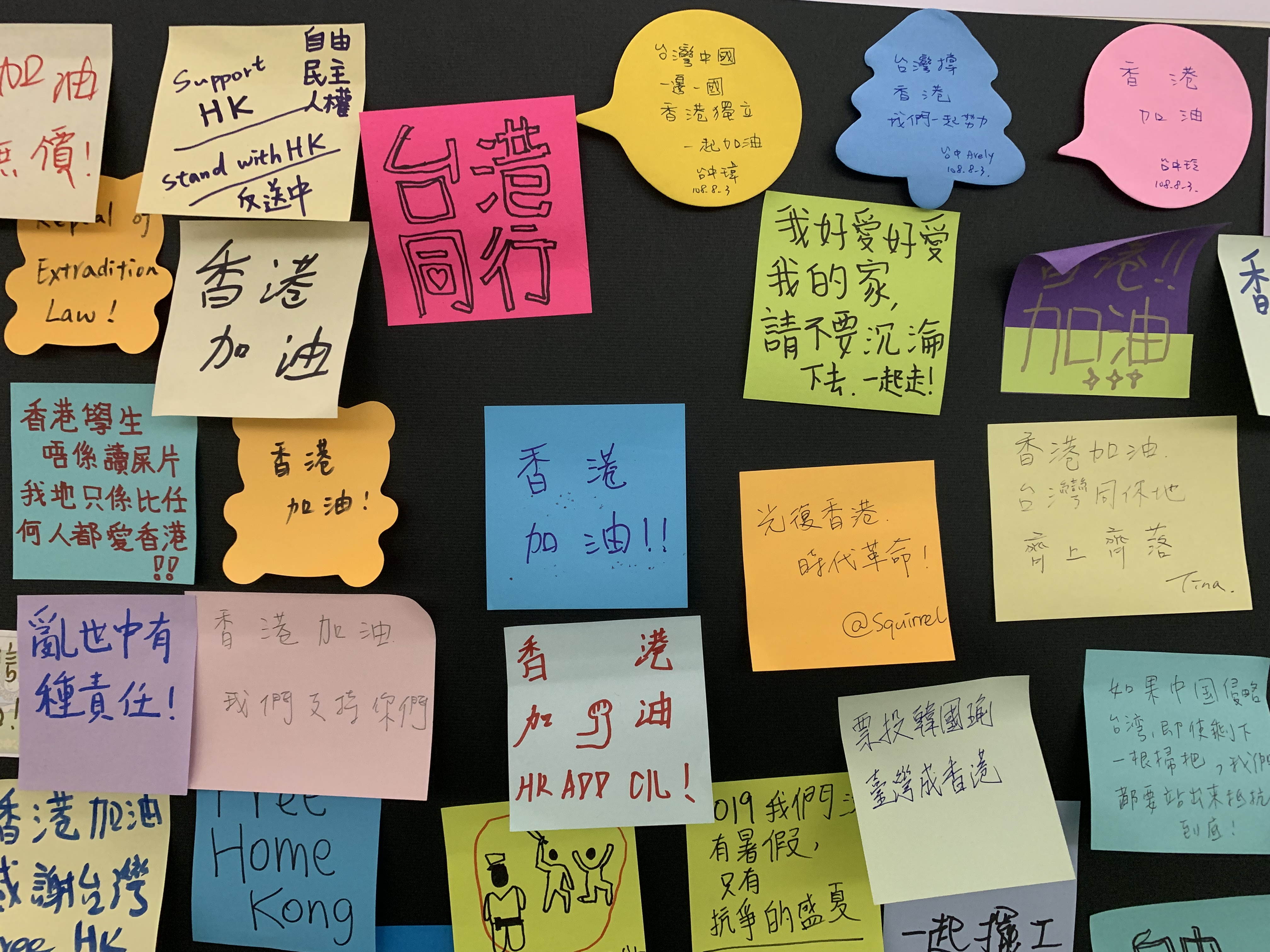

A few of them explicitly reference previous social movements in Taiwan and Hong Kong, with pictures depicting yellow umbrellas for Hong Kong's Umbrella Movement and Sunflowers for Taiwan's Sunflower Movement, both of which occurred in 2014.
Those movements, while not entirely successful in changing the political climate long-term in either Taiwan or Hong Kong, have had a lasting impact on activism in both places.

In several places, the five demands of Hong Kong protesters are laid out:
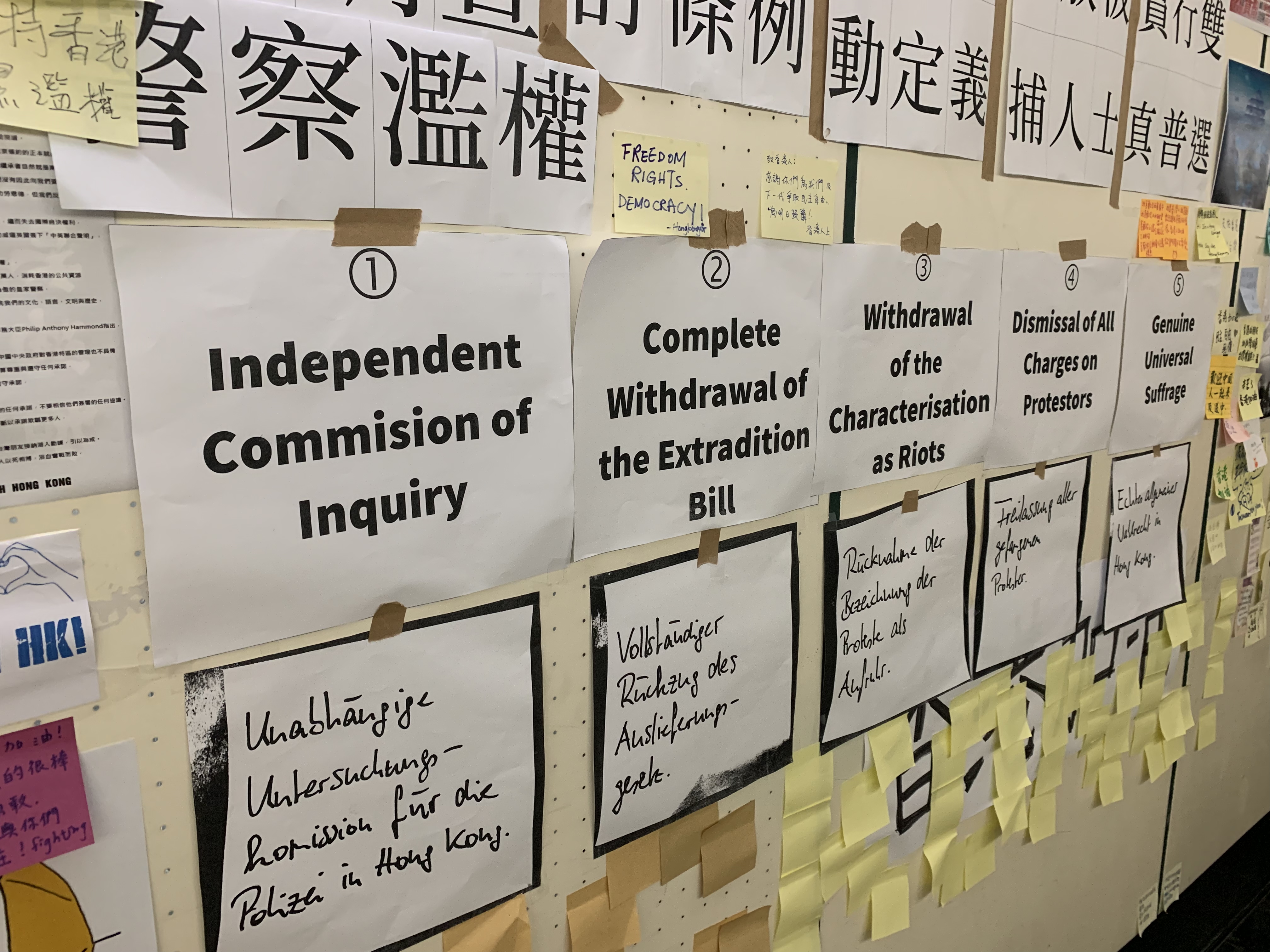

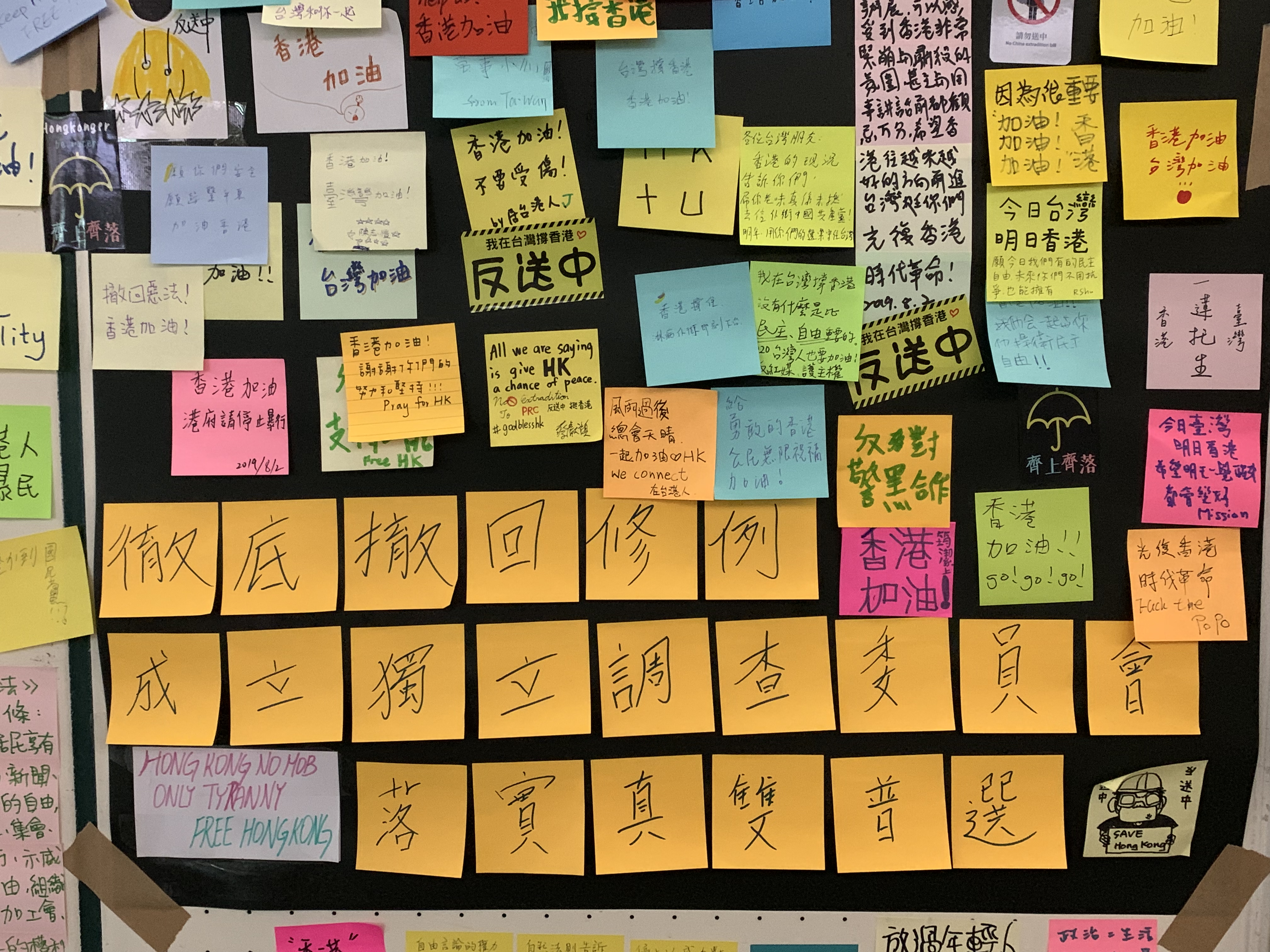
Some point out that protests have grown less peaceful (mostly in defense as the police have unleashed violence on protesters) because "if peaceful protest worked, we wouldn't have to come out every weekend".
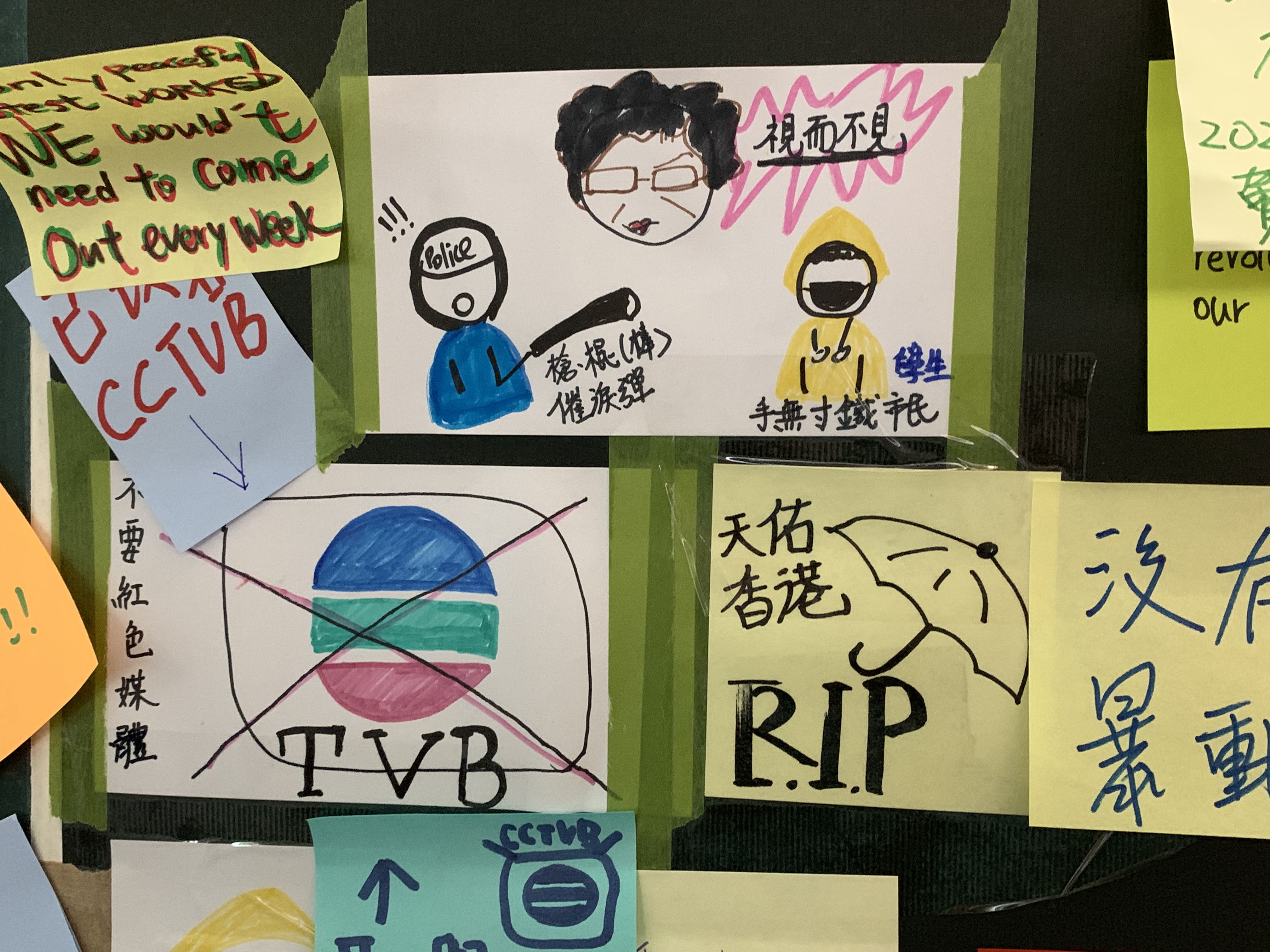
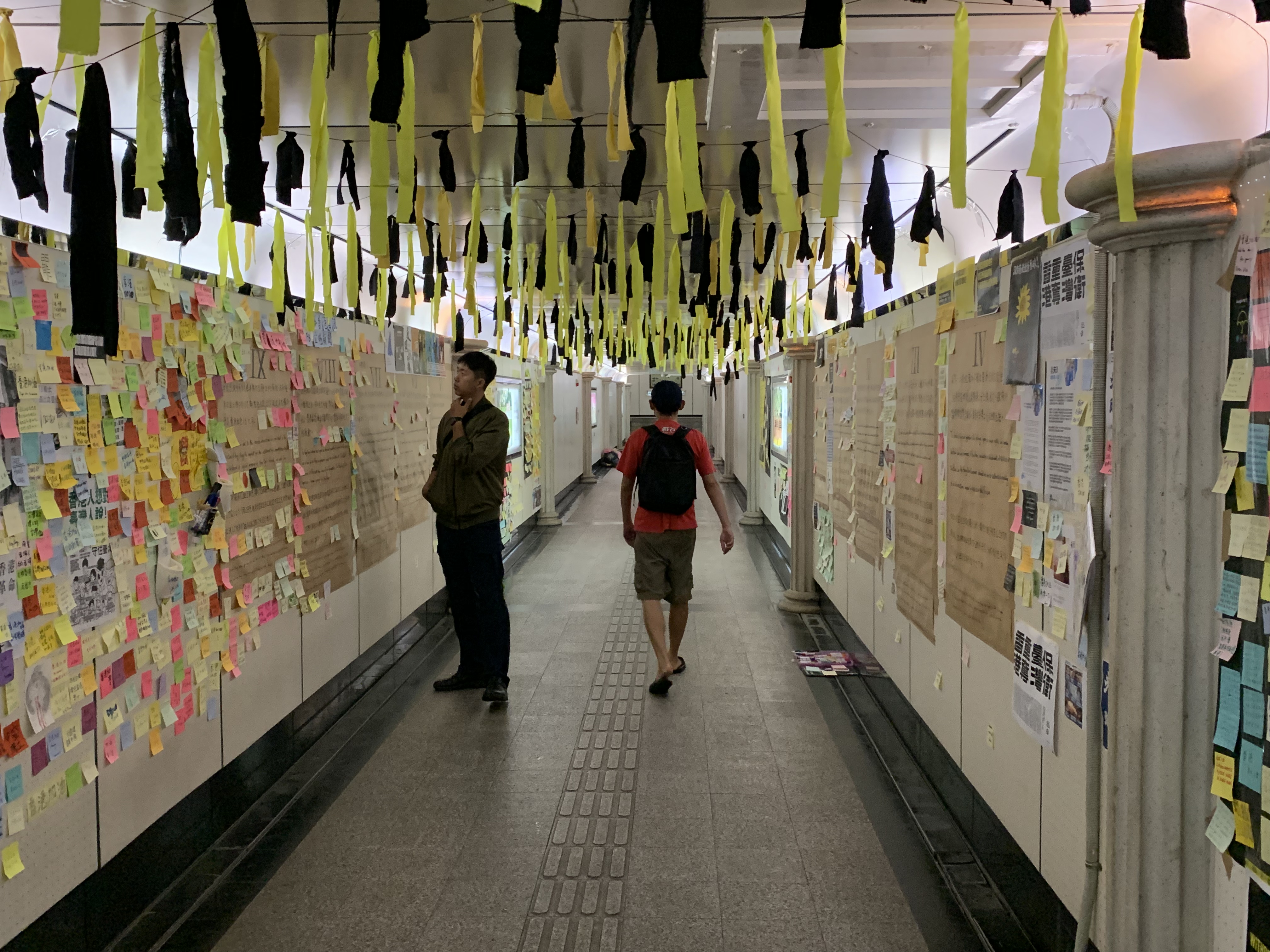

Others clarify that this fight isn't just about the China extradition bill - Hong Kong wants democracy and it's at a tipping point. The scope of what protesters are fighting for has widened, which is both wonderful and dangerous (and something they were going to have to eventually fight for, which I suspect most people had known already but not necessarily previously articulated.)
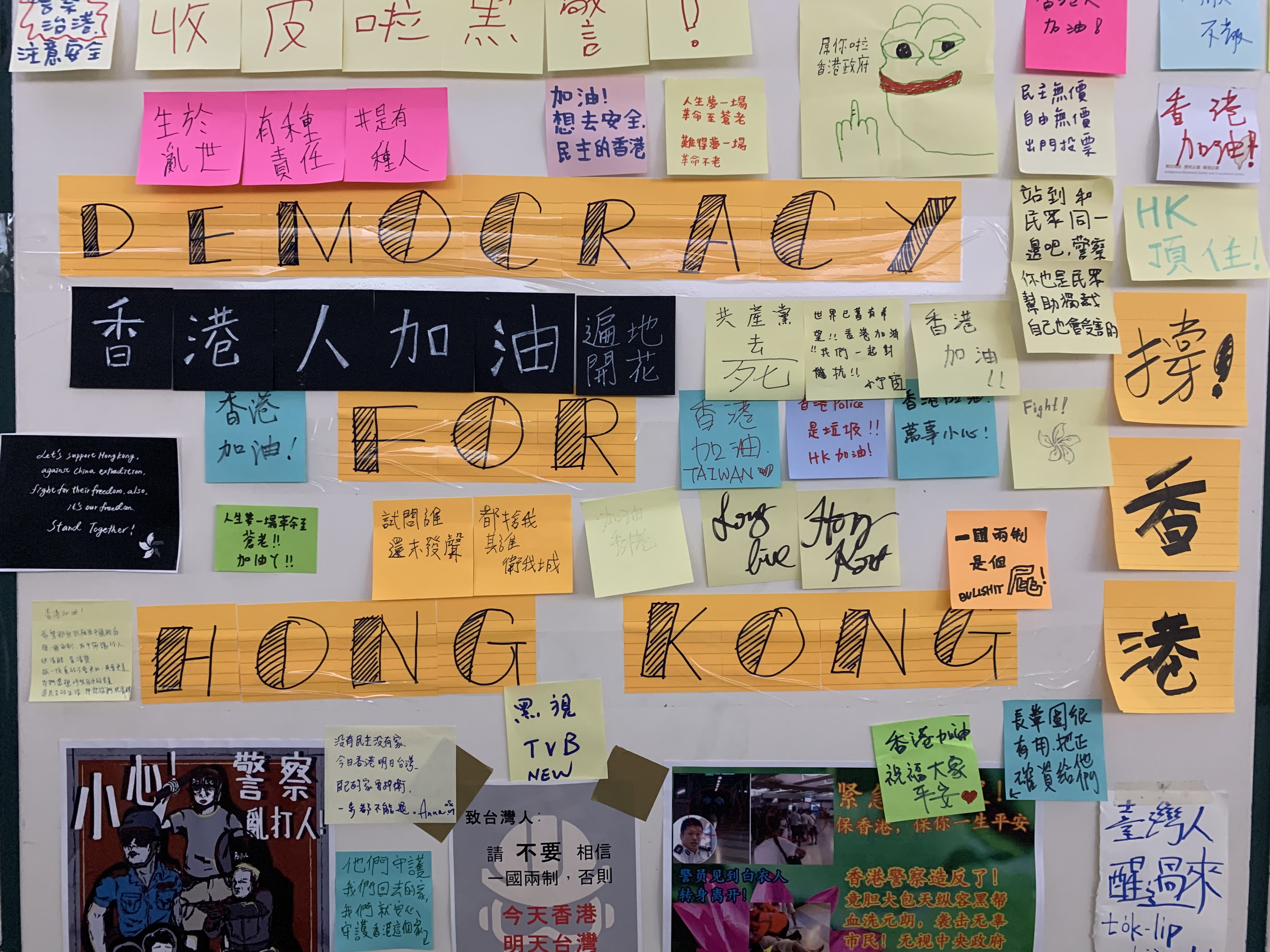
Of course, issues facing Taiwan, Hong Kong, Tibet, Xinjiang and other places are intertwined, as all of us are locked in a battle against an expansionist, aggressive, human-rights-abusing dictatorship that seeks to control us:


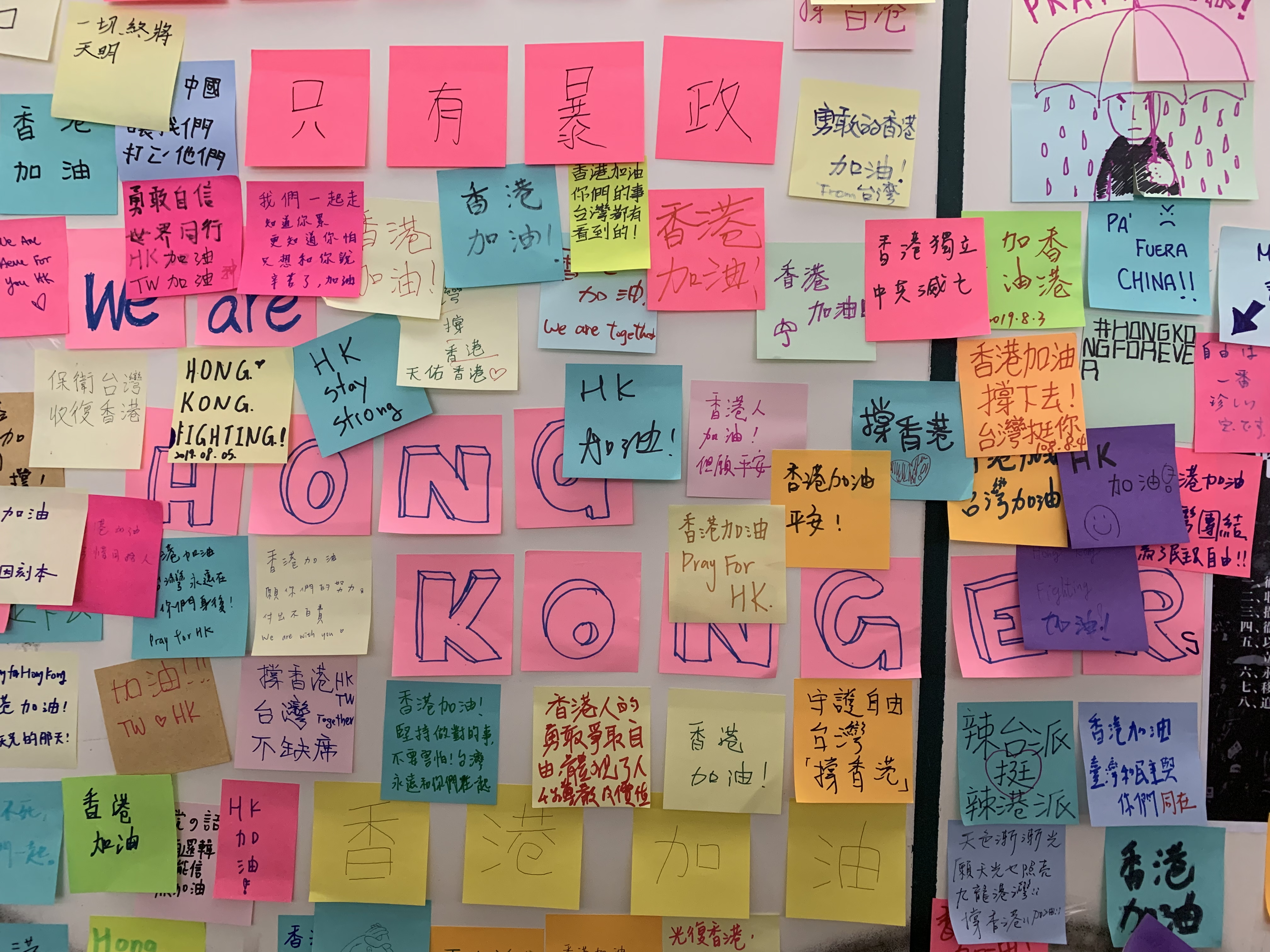
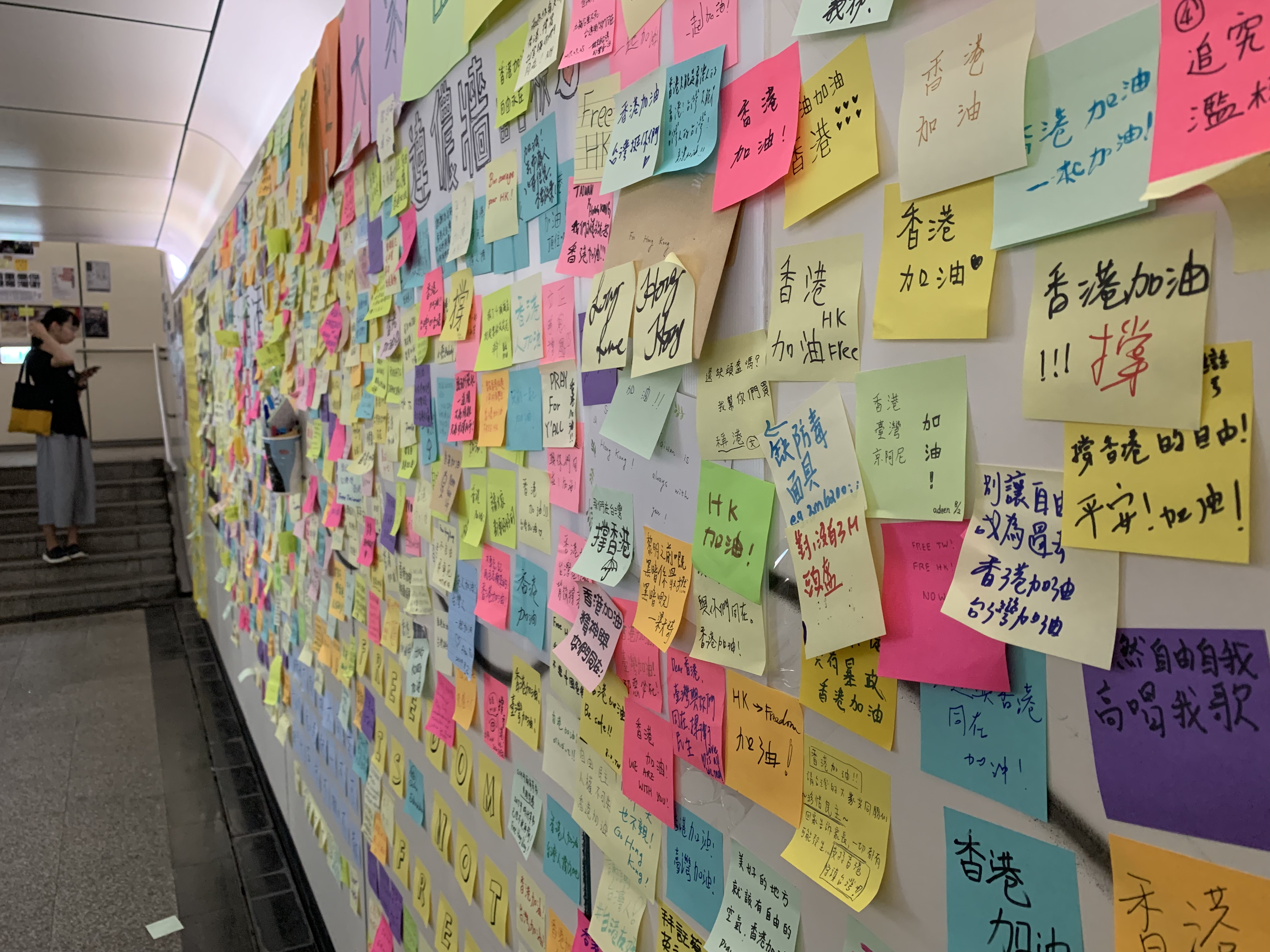
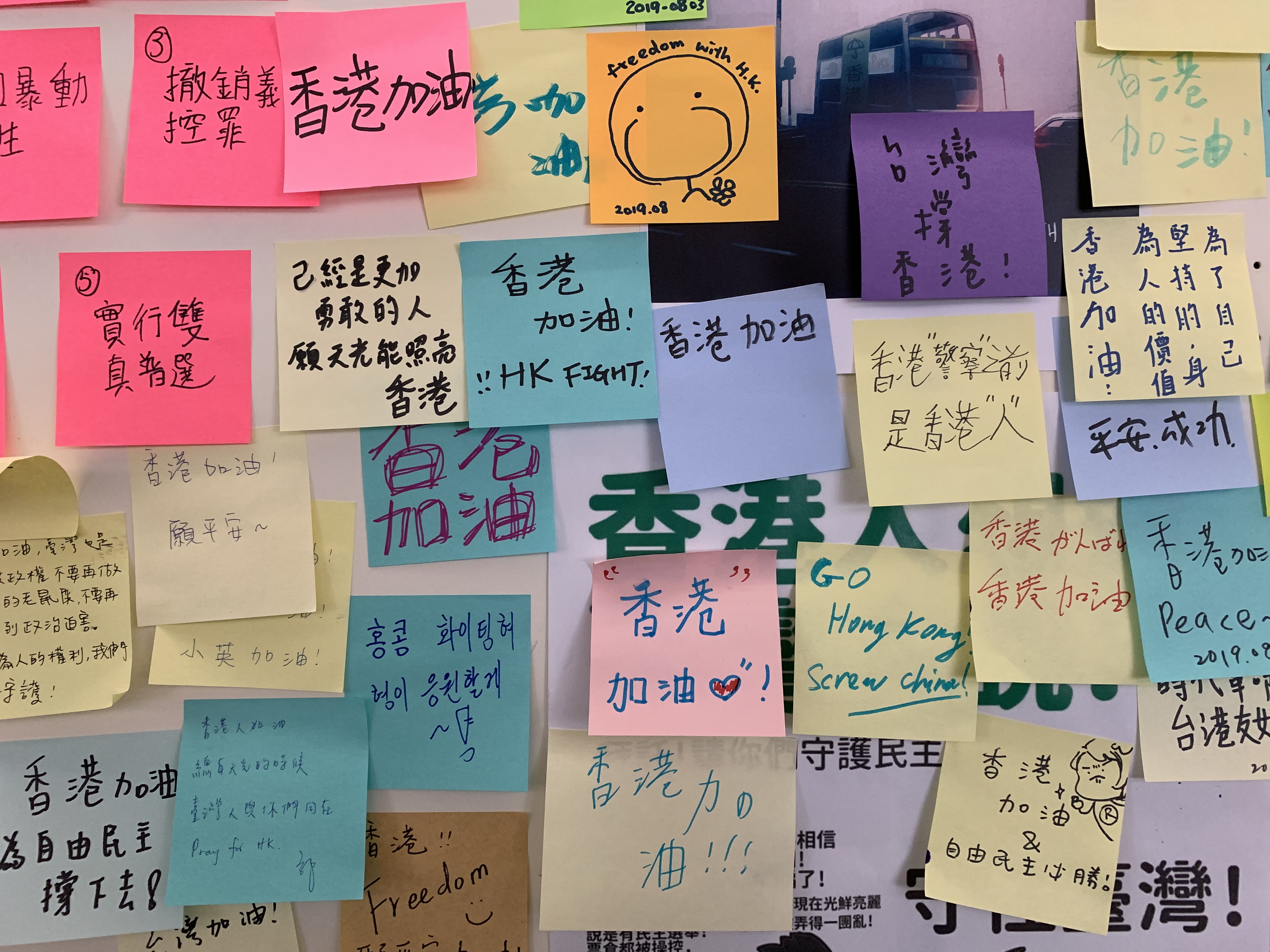
Similarities between the KMT in Taiwan and the CCP - and the KMT's closeness with China - are also pointed out. Underneath the Winnie the Pooh (Xi Jin-ping) with a KMT sun on his chest, are the words "don't throw your vote away" (literally "don't vote messily/carelessly").
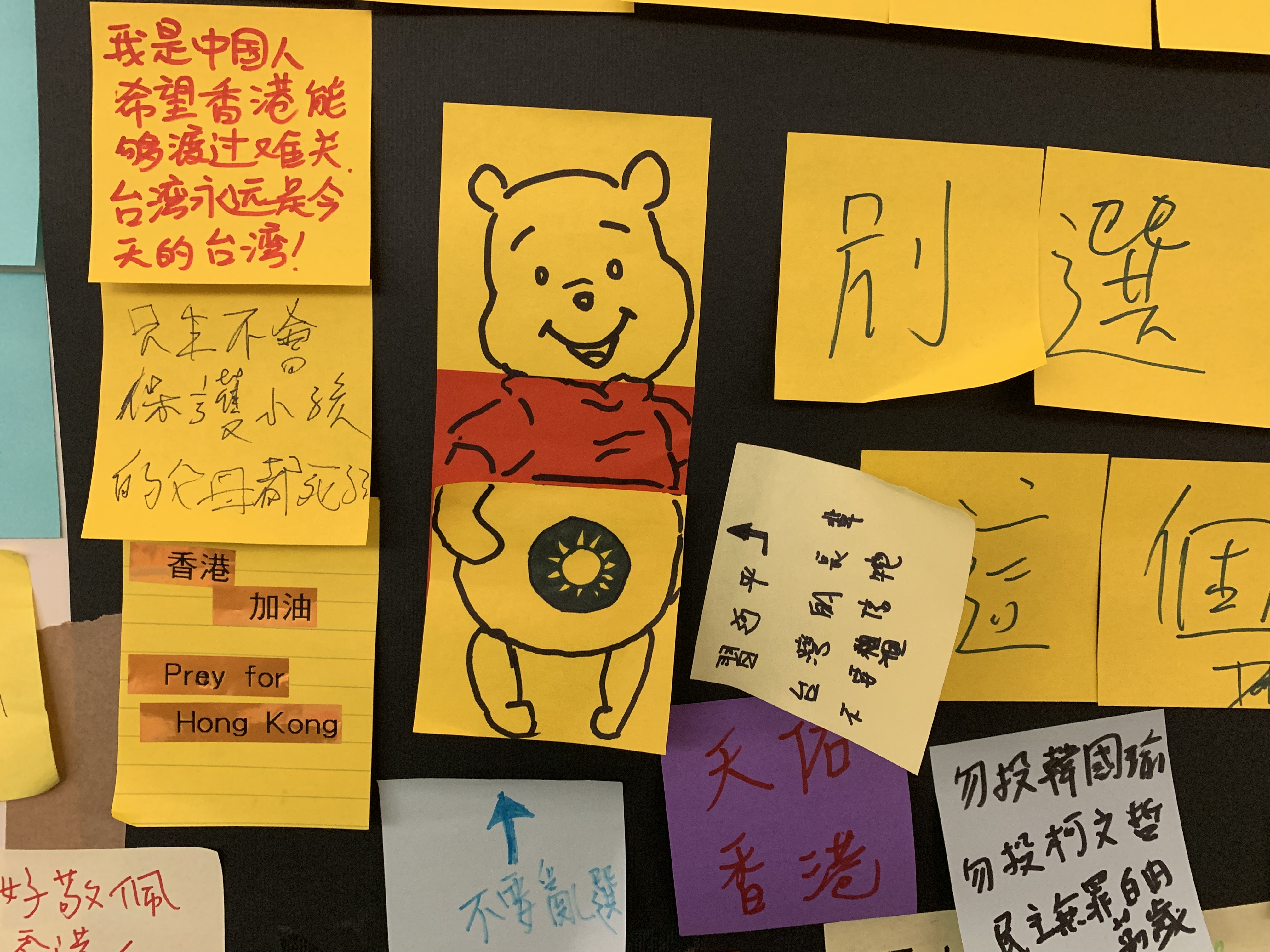
"Today Hong Kong, Tomorrow Taiwan"

This one speaks for itself.

A Cantonese version of "Do You Hear The People Sing" has become a popular protest anthem in Hong Kong. I can't help but draw a connection between the hopelessness of the protest in Les Miserables and the protests in Hong Kong. Though Hong Kongers seem to be doing a better job than Enjolras, Marius & the gang.


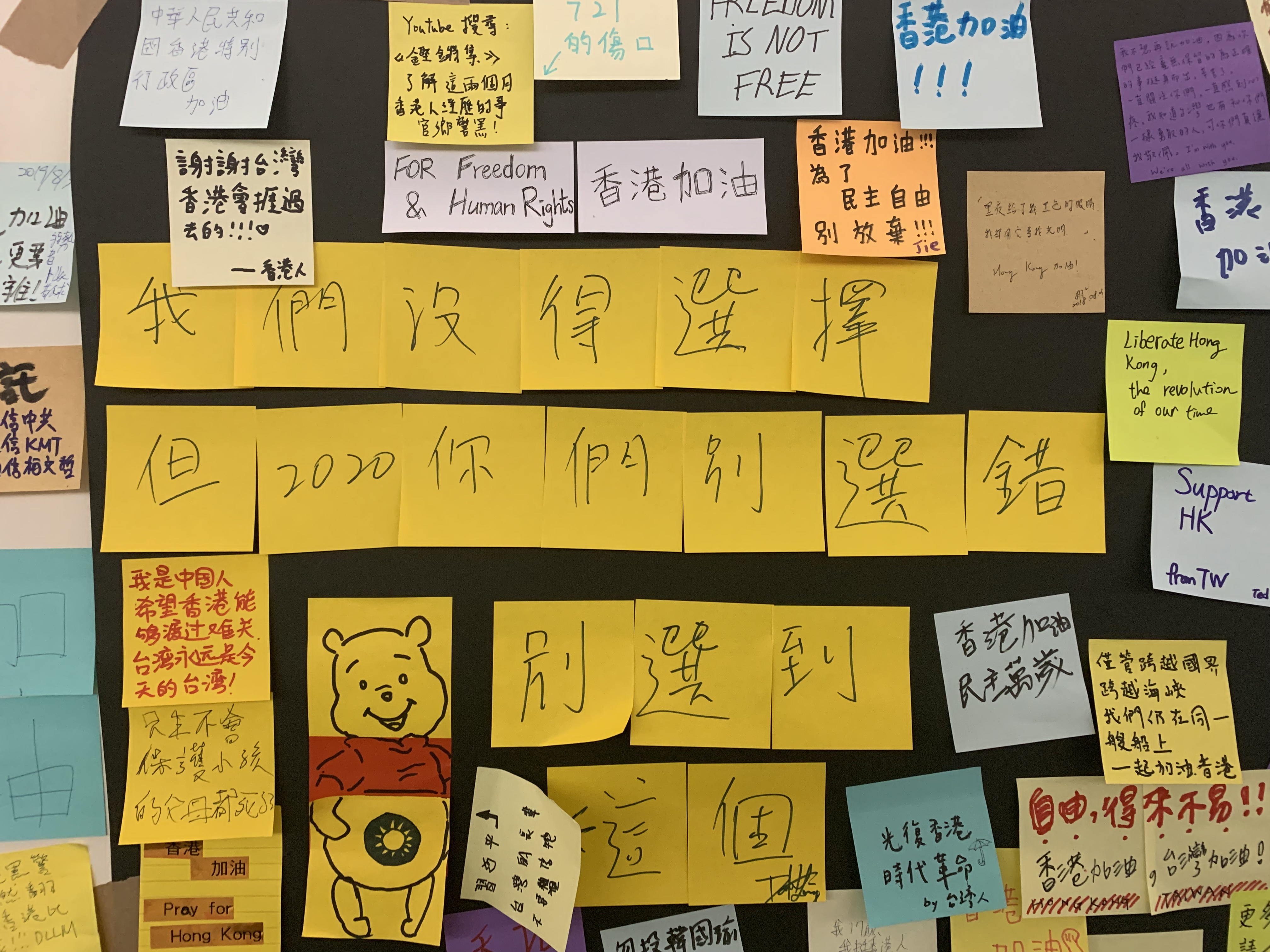
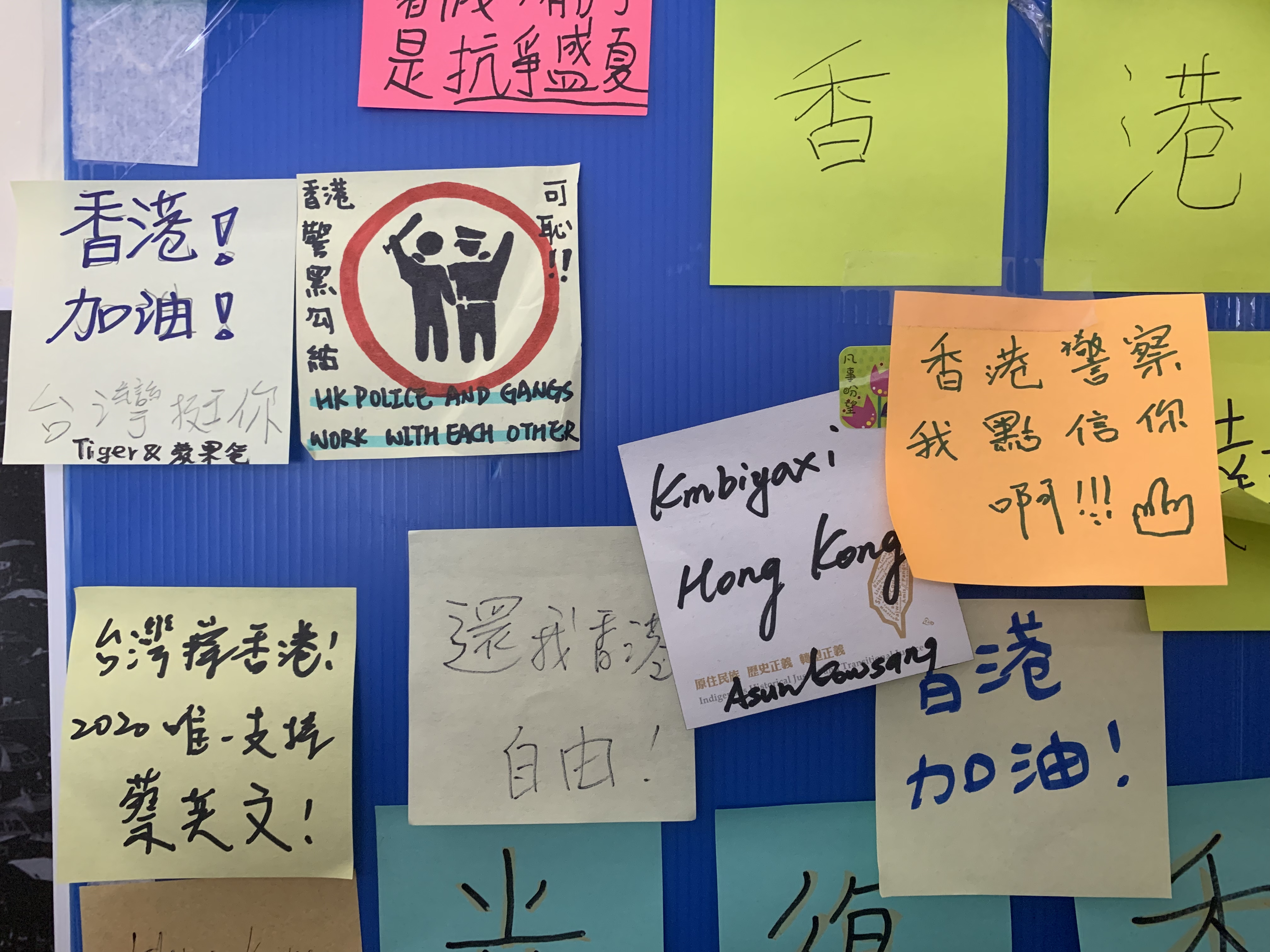
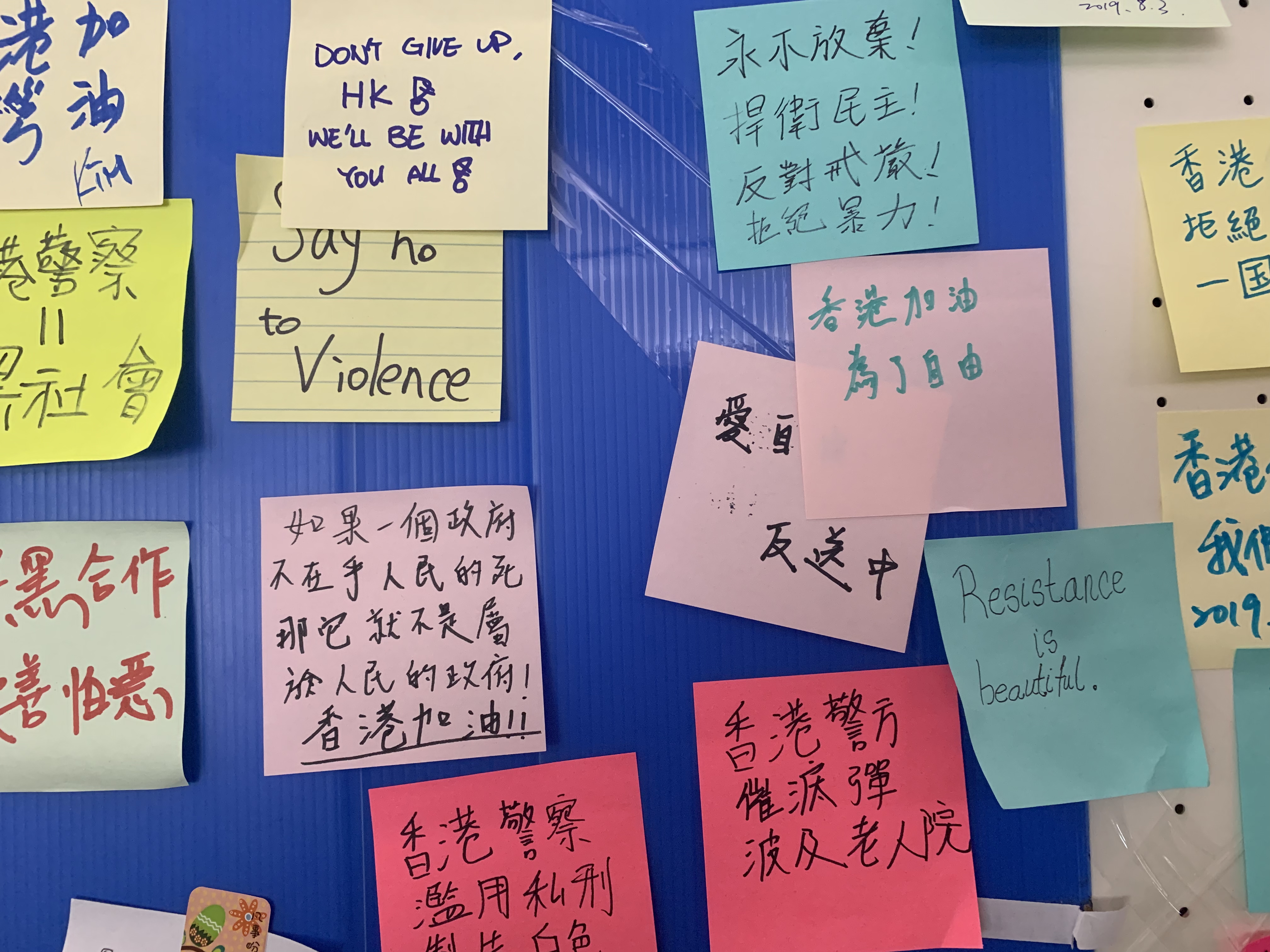

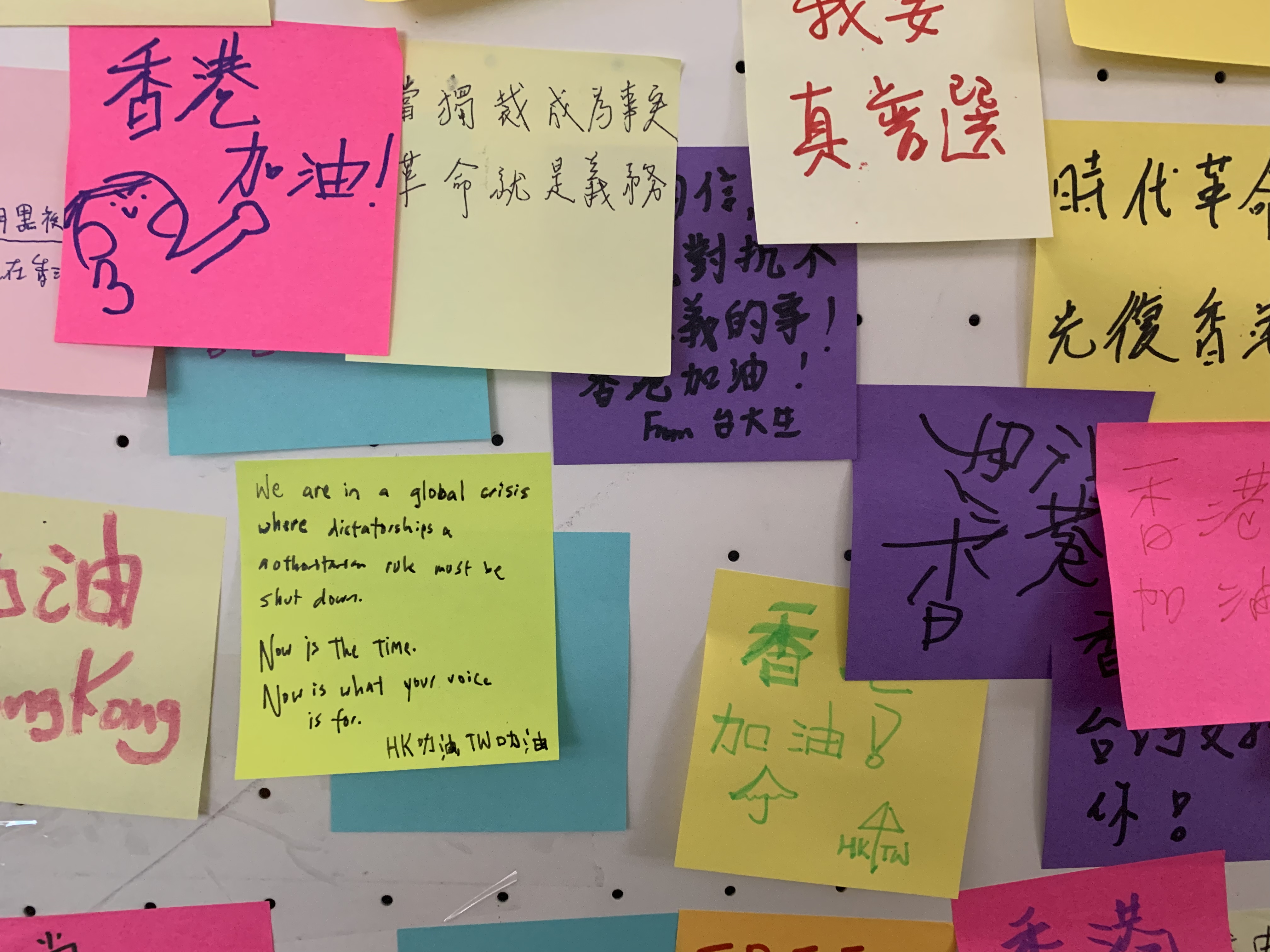

Taoist hexes (I think) being placed on a picture of Carrie Lam. One is about long life, the other says "retrocession for Hong Kong" (back to the UK? Toward independence? I'm not sure).


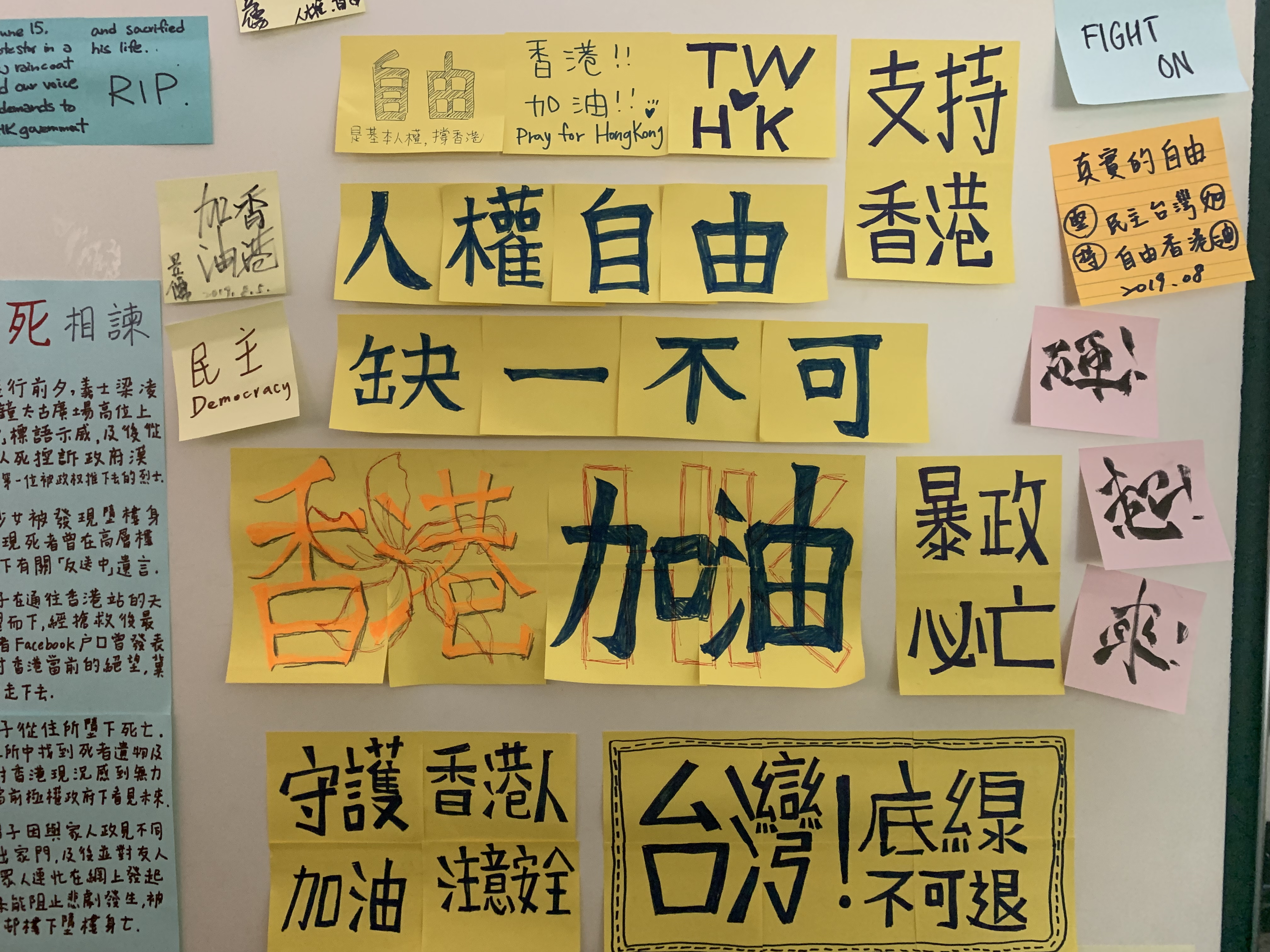
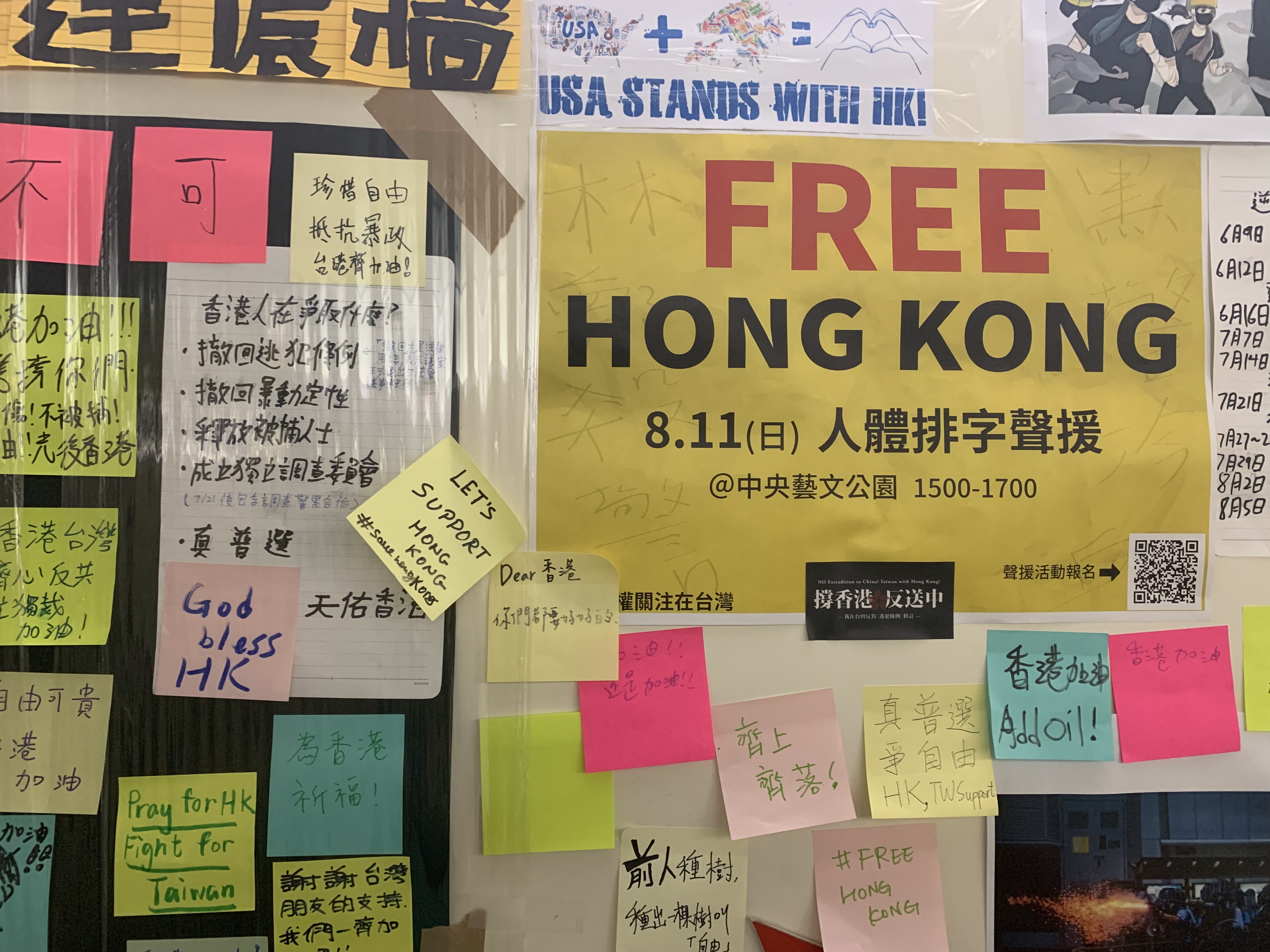

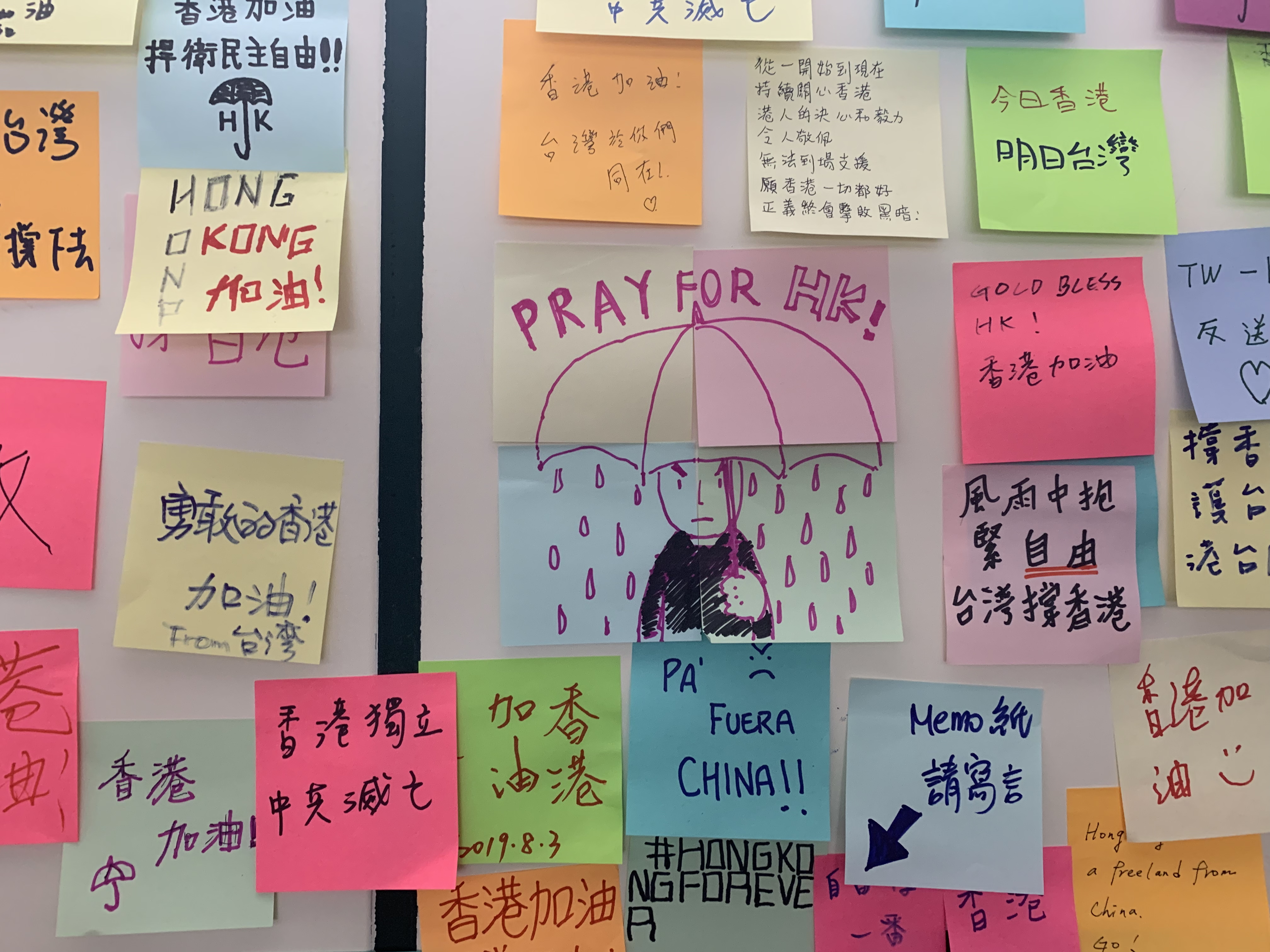
This slogan (on the black paper) was popular during Taiwan's Sunflower Movement:
A memorial for the poncho-clad protester killed as a result of being hit with several water cannons early in the protests. Yellow ponchos have also become a symbol of protest for Hong Kong as a result.
Pens and post-its are available for anyone who comes unprepared.
